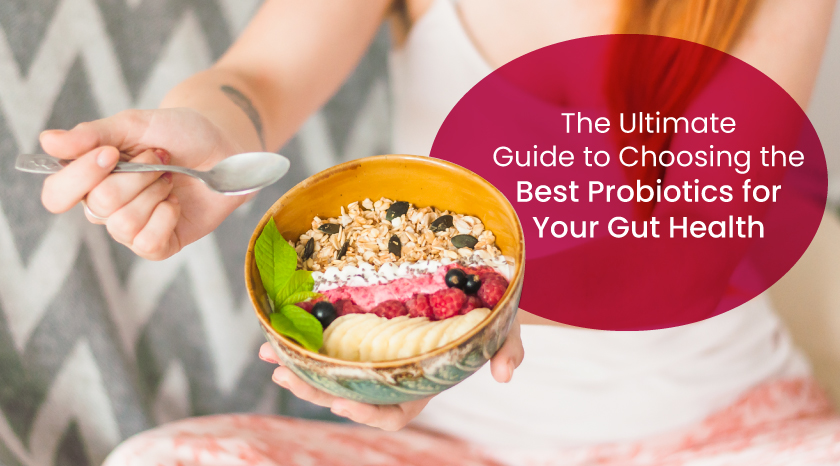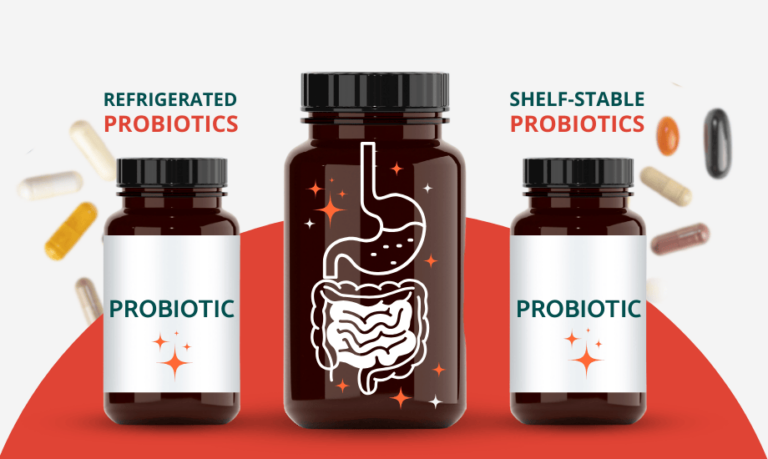Understanding Probiotics: What They Are and How They Work
Probiotics are tiny living things, like good bacteria and yeast, that help your body stay healthy. They mostly live in your gut, which is part of your digestive system. These good germs help break down food, fight off bad germs, and keep your gut working well. Think of them as little helpers that balance things inside you. When you eat foods or take supplements with probiotics, you add more of these helpers to your body. They can improve digestion, boost your immune system, and even help your mood since your gut and brain are connected.
Probiotic Supplements vs. Probiotic-Rich Foods: Which is Better for You?
You can get probiotics from supplements, like pills or powders, or from foods like yogurt and fermented veggies. Supplements are easy because they have a set amount of probiotics, and you know exactly what you’re getting. They’re good if you need a specific type or a high dose. But foods with probiotics, like kefir or sauerkraut, often have other nutrients too, like vitamins and fiber, which help your body in extra ways. Foods might be better for daily use since they’re natural and tasty. The best choice depends on your needs—supplements for quick fixes, and foods for long-term health.

The Importance of Strain-Specific Probiotics for Targeted Health Benefits
Not all probiotics are the same. They come in different types, called strains, and each strain does something special. For example, Lactobacillus acidophilus can help with digestion, while Bifidobacterium longum might boost your immune system. If you have a specific problem, like bloating or allergies, you need the right strain to fix it. Look at the label on supplements or research foods to find the strain that matches your health goal. Picking the right one can make a big difference in how well it works for you.
Best Probiotics for Women: Supporting Vaginal Health and Overall Wellness
Women often need probiotics for gut health and to keep their vaginal area healthy. Strains like Lactobacillus rhamnosus and Lactobacillus reuteri can help prevent infections down there by keeping bad bacteria away. They also help with digestion and can ease bloating, which many women deal with. Look for supplements or foods like yogurt that have these strains. Taking probiotics regularly can support overall wellness, especially during times like pregnancy or after taking antibiotics, when your body might need extra help.

Best Probiotics for Men: Boosting Gut Health and Immune Function
Men can benefit from probiotics too, especially for gut health and a strong immune system. Strains like Bifidobacterium bifidum and Lactobacillus plantarum are great for helping digestion and fighting off sickness. A healthy gut can also give men more energy and help with stress. You can find these in supplements or foods like kimchi and miso. Adding probiotics to your routine can keep your body strong and ready to handle daily challenges.
When Probiotic Supplements Might Do More Harm Than Good
Probiotics are usually safe, but they’re not for everyone. If you have a weak immune system, like from a serious illness or certain treatments, probiotics might cause infections. Also, taking too many or the wrong kind can lead to bloating or stomach pain. If you’re not sure, start with a small amount and see how your body reacts. And if you have health problems, talk to a doctor before starting supplements. Sometimes, your body just needs time to adjust, but it’s better to be careful.

The Top Probiotic-Rich Foods for a Healthier Gut
You don’t always need pills to get probiotics. Many foods are packed with them! Yogurt with “live cultures” is a popular choice—just check the label. Kefir, a fermented milk drink, has even more good bacteria. Sauerkraut and kimchi, which are fermented cabbage, are tasty options if you like tangy flavors. Miso, a fermented soybean paste, works great in soups. And kombucha, a fizzy tea drink, can also help. Eating these foods regularly can keep your gut happy without extra cost.
How to Choose the Right Probiotic for Your Specific Health Needs
Picking the right probiotic starts with knowing what you need. If you have diarrhea, look for strains like Saccharomyces boulardii. For general gut health, a mix of Lactobacillus and Bifidobacterium works well. Check the label for the strain name and the number of live bacteria, called CFUs (colony-forming units). Higher CFUs, like 10 billion or more, are often better, but don’t overdo it. Also, make sure the product is fresh—probiotics die over time. If you’re unsure, ask a pharmacist or doctor for advice.

How Long Does It Take to See Results from Probiotics?
Don’t expect instant changes when you start taking probiotics. It usually takes a few weeks to notice a difference, like less bloating or better digestion. For some people, it might take up to a month or two, depending on your body and the probiotic type. Keep taking it every day as directed, and don’t stop too soon. If you don’t see any change after a couple of months, it might be the wrong strain or dose for you. Be patient, but also pay attention to how you feel.
Should You Rotate Your Probiotics for Maximum Benefit?
Rotating probiotics means switching between different strains or brands every few months. Some experts say this can help because your gut might get used to one type and stop benefiting as much. Trying new strains can keep your gut diverse, which is good for health. But there’s no hard proof this works for everyone. If you feel fine with one probiotic, you might not need to change. If you do rotate, keep track of how each one makes you feel to find what works best.
When to Consult a Dietitian or Medical Expert for Probiotic Guidance
If you’re confused about probiotics or have health issues, it’s smart to talk to a dietitian or doctor. They can help if you have conditions like irritable bowel syndrome (IBS), allergies, or a weak immune system. They might suggest specific strains or warn you if probiotics aren’t safe for you. Also, if you’ve tried probiotics and feel worse, get advice. Experts can guide you to the right choice and make sure you’re not wasting time or money on something that won’t help.
A Gut-Friendly Meal Idea: Miso Nourish Bowl Recipe
Want a simple meal that’s good for your gut? Try a miso nourish bowl. Start with a base of cooked brown rice or quinoa. Add steamed veggies like broccoli and carrots. Toss in some protein, like tofu or chicken. Then, mix a spoonful of miso paste with warm water and drizzle it over the bowl as a dressing. Miso is full of probiotics, and the veggies and grains add fiber to feed the good bacteria. It’s easy to make, filling, and helps your gut stay healthy.
The Future of Probiotics: Personalized Options for Better Outcomes
Soon, probiotics might be made just for you. Scientists are working on ways to test your gut bacteria and create custom probiotics that match your exact needs. This could mean better results for problems like digestion or even mood issues. In the future, instead of guessing which strain to take, a doctor might give you a personalized plan. While this isn’t common yet, it shows how probiotics could become even more helpful as we learn more about the gut.












